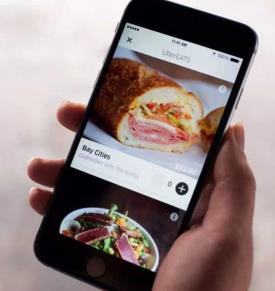 EGG-NEWS has frequently commented on the extreme competition and low profit associated with third-party food and grocery delivery. Extreme competition has inevitably resulted in consolidation. Recently GrubHub operating in the U.S. was acquired by Just Eat Take Away of the EU. Uber Technologies then acquired Postmates, their second choice, for $2.65 billion in an all-stock transaction. Uber Technologies has also integrated Corner Shop to establish a foothold in Latin America.
EGG-NEWS has frequently commented on the extreme competition and low profit associated with third-party food and grocery delivery. Extreme competition has inevitably resulted in consolidation. Recently GrubHub operating in the U.S. was acquired by Just Eat Take Away of the EU. Uber Technologies then acquired Postmates, their second choice, for $2.65 billion in an all-stock transaction. Uber Technologies has also integrated Corner Shop to establish a foothold in Latin America.
Uber Technologies recently restructured, establishing the “Mobile” segment representing ride hailing and “Delivery” responsible for food and grocery services, previously operated as Uber Eats. A third segment “Freight” will operate in parallel with the two major company segments.
The relative non-profitability of food delivery is illustrated by the Q2 results posted by Uber Technologies. For the most recent quarter, the Delivery segment lost $232 million on revenue of $885 million. In contrast, Mobility showed a net contribution to EBITDA of $50 million on revenue of $793 million. The Freight segment lost $49 million on revenue of $167 million. For Q2 of 2020, Uber Technologies lost $1.775 Billion on revenue of $2.241 billion with an EPS of $[1.02]. For the corresponding second quarter of  2019, Uber Technologies lost $5.24 billion on revenue of $3.166 Billion with a negative EPS of $[4.72]. It is to the credit of CEO Dara Khosrowshahi that expenses were sharply reduced over the past year. For Q2 of FY 2019, expenses for the categories of Research and Development, Sales and Marketing and General Administration amounted to $5.92 Billion. For the most recent quarter the company reduced expenditure in the three categories to $1.89 Billion.
2019, Uber Technologies lost $5.24 billion on revenue of $3.166 Billion with a negative EPS of $[4.72]. It is to the credit of CEO Dara Khosrowshahi that expenses were sharply reduced over the past year. For Q2 of FY 2019, expenses for the categories of Research and Development, Sales and Marketing and General Administration amounted to $5.92 Billion. For the most recent quarter the company reduced expenditure in the three categories to $1.89 Billion.
Uber Technologies has a market capitalization of $53.4 billion and has traded over the past 52 weeks in a range of $13.71 to $41.86 with a 50-day moving average of $31.80. Twelve-month trailing return on assets was a negative 10.0 percent with a negative 52.7 percent on equity. Operating margin attained negative 34.7 percent and the profit margin negative 51.0 percent. As of June 30th, 2020 total assets amounted to $28.24 billion with long-term debt of $9.67 billion.
Uber and other ride hailing companies have a significant problem in California. The company recently lost a court challenge to AB5, legislation that designated drivers as employees eligible for benefits rather than independent contractors. A California court denied a request for a moratorium in implementing AB5 until the results of Proposition 22 on November 3rd are known. This ballot initiative effectively parallels AB5 in intent. Accordingly, the company will have to meet an August 20th deadline for compliance. Both Lyft and Uber will incur higher costs if they are obliged by law to provide drivers with benefits including sick leave, insurance, and PPE.
Recovery of the casual dining and white-tablecloth segments of the restaurant industry is reliant on third-party delivery either provided by services such as Uber Eats or direct delivery by restaurants. In the event that California Proposition 22 is adopted which is most likely, Uber and Lyft together with their clones will not be able to pass on increased costs to consumers and restaurants. It is generally accepted that trends that emerge in California eventually spread eastward to take root on the opposite coast and eventually encompass the entire nation. Financial prospects for third-party restaurant and grocery delivery do not appear promising. Obviously, there is a need for this service, but providers cannot make a profit with prevailing rates.